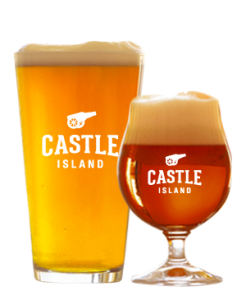
“It doesn’t take brain surgery to put a name into Google and you come up with pretty much every trademark,” Thorpe said.
Victory Brewing co-founder Bill Covaleski, who was forced to defend the mark on his Headwaters Pale Ale brand last year, echoed Thorpe’s words.
“It’s hard to have sympathy for someone who doesn’t do a Google search,” he said.
But in this most recent case involving West Sixth and Magic Hat, the infringement centers more around the “dress,” or the look of the logo as opposed to the name itself. Douglas Wolf, the trademark and copyright chair at Wolf Greenfield — a Boston-based law firm specializing in intellectual property law — said the most important consideration for startup brands is selecting a mark and design that can stand on its own.
“With this industry [craft beer], there are so many small companies and with all those competitors come a lot of marks,” he said. “I think part of the issues begin with the hobbyist nature of the business. It’s important for startups to consider the future, and not get married to a name or design immediately. They need to be able to divorce themselves a bit and actually go through the legal process of searching the mark.”
Wolf, who works with Narragansett Brewing and other small brewers, suggests that craft breweries concerned about infringement issues use the USPTO.gov trademark searchable database. That’s exactly what Adam Romanow, the co-founder of Castle Island Brewing Company, a brewery in planning in Boston, learned to do the hard way in January. He invested nearly $10,000 on branding and website design for Critical Mass Brewing — the initial concept of his startup brewery — only to learn that a California-based winery owned the mark. After receiving a cease-and-desist letter, he was forced to go in a different direction.

Aside from the Magic Hat and West Sixth case, trademark issues involving craft beer companies fly mostly under the radar. Consumers generally only perk up when smaller companies take to social media outlets like Facebook and Twitter to voice their emotions.
Eugene Pak, a litigation attorney who works with Bear Republic Brewing and other California-based craft brewers believes that inviting the public to join the trademark discussion can become a slippery slope.
“I think you have to be very careful with what you say, before you accuse someone of corporate bullying,” he said. “These are very subjective disputes so it is sometimes best to take more of a neutral tone. You want to be more factual if you are going to advocate in for your brand in a public forum and have a conversation with your counsel before you go that route.”
Wolf believes that social media can be a great tool for smaller companies that can’t afford to litigate, but suggested making a phone call before taking to the company blog.
“I think a business to business conversation, after having been coached by counsel is usually the best first step,” he said. “You shouldn’t go in cold and talking to an attorney that knows about branding is usually a good idea. The cost and impact of litigation on both parties is very high.”
